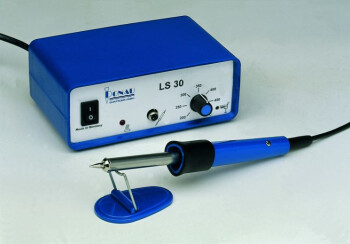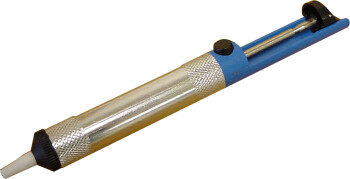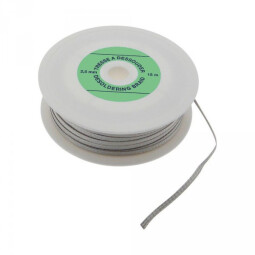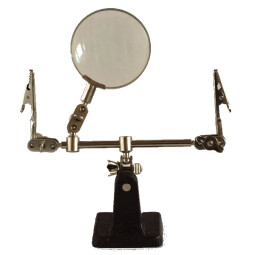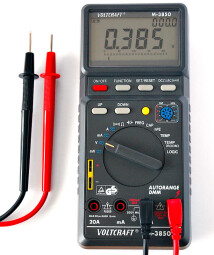The use of a soldering iron is indispensable if you need to change the pickups, a jack or any other component of your guitar. While changing a string is no secret for most of us, it's a whole different story when it comes to fiddling with the electronics. That's why we'll address the best practices for correct and reliable soldering in this series of articles, starting with the necessary soldering material.
Ironman
Using the first soldering iron you find in your way may be OK for a one-time job, but it won’t necessarily be the best suited to the task at hand. If you limit yourself to electric guitar (and bass) solder joints, the ideal temperature to make tin boil without burning the contacts is around 360 degrees. Basic irons need some time until they reach this temperature, but they can go up to 450º and, some of them, even higher. Since there’s no need for you to put your hands on the iron to see if it has reached the right temperature, and most probably you don’t have a thermometer that can read such temperatures, you can buy an iron with a built-in thermostat, like this one, for example. Finally, if you are looking for the best quality, you should go for Weller, the undisputed leader in this regard, like Facom when it comes to equipment.
Tin soldier
The other crucial factor to get impeccable solder joints is the tin employed. It’s best to buy “SN 60” solder (which has 40% lead and, thus, should be kept away from children, who might get intoxicated if they put it in their mouths), whose price is negligible, considering the service it will provide.
And the rest
If you want to solder something fast or renovate your instrument completely, a soldering iron and solder won’t be enough. You will also need:
- De-soldering equipment, with two options: A pump, which is easy to use, or a braid, which works by capillary action
- A third hand, for increased comfort
- Electrical contact spray cleaner
- Screwdrivers, especially Phillips type, in different sizes to avoid botching the screws when mounting or unmounting
- Wire strippers in good shape
- Masking tape, like the kind used to protect baseboards when painting, because it doesn’t leave any marks
- A cotton cloth, like an old t-shirt or similar. It should be big enough to cover the entire body of the guitar and the surface on which you will be working on
- A basic multimeter to check the joints before plugging in
You could obviously add lots of other accessories to the list, but the above ought to be enough in most cases.
Now that we’ve reviewed the equipment, in the second part of this series we’ll show you how to use all these nice little things with a practical example.



